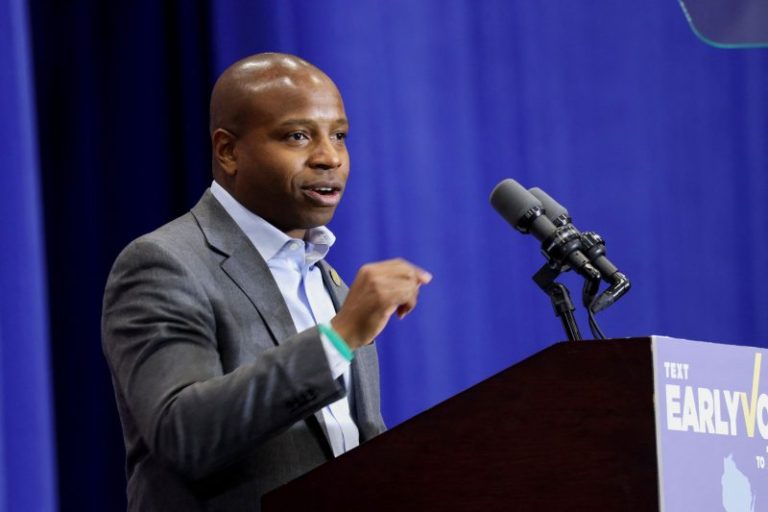MADISON, Wis. — Milwaukee’s mayor fired a top elections official after learning she had sent military ballots under fictitious names to a state lawmaker who has questioned how elections are run in Wisconsin, the mayor said Thursday.
Mayor Cavalier Johnson (D) announced he had fired Kimberly Zapata, the deputy elections director for the city, after discovering she had sent the ballots in an apparent attempt to show committing such a crime was possible.
Elections officials and prosecutors are looking into the incident, which centered on absentee ballots meant for members of the military. Unlike almost every other state, Wisconsin for years has allowed service members to cast ballots without registering to vote. A state website permits people to order military ballots without providing proof of residency.
Get ready to vote with our democracy toolkit
End of carousel
State Rep. Janel Brandtjen (R) — the chairwoman of the Wisconsin State Assembly’s elections committee, who has amplified false claims about elections — announced Monday she had received three military ballots under what appeared to be fake names at her home. Brandtjen turned the ballots over to the Waukesha County sheriff’s office and disclosed what happened in a news release.
Within days, Johnson learned Zapata had sent the ballots and fired her.
“This has every appearance of being an egregious, blatant violation of trust, and this matter is now in the hands of law enforcement,” Johnson said during a short news conference Thursday morning.
Zapata used the state’s online portal for ordering absentee ballots that is available to anyone and did not use any systems that are available only to election workers, said Claire Woodall-Vogg, Milwaukee’s elections director.
Milwaukee County District Attorney John Chisholm’s office issued a statement Thursday saying charges would probably be issued within days. Zapata’s attorney, Michael Maistelman, declined to comment.
The Milwaukee Journal Sentinel first reported on the firing of Zapata, who has worked for the city for seven years.
Election officials said they have not seen signs of others ordering absentee ballots under fake names and emphasized that the incident involving Zapata was identified quickly.
Ann Jacobs, a Democrat who sits on the state’s bipartisan elections commission, criticized the action and said she did not believe it pointed to a systemic problem. Anyone who tried to order the number of fake absentee ballots that would be needed to change election results would be quickly caught, she said.
“You’re not going to be able to go in and create 20,000 ballots to be sent to your home and not have that be flagged,” she said Monday, before Zapata was publicly identified. “There’s a reason why this doesn’t happen, and the reason it doesn’t happen is a felony is a pretty big deterrent. And to do it on any scale where you could actually affect an election would be massive and would be seen and you would be caught trying to do that.”
The three ballots were sent to Brandtjen’s home in suburban Milwaukee under the names Holly Adams, Holly Brandtjen and Holly Jones and marked as military ballots. In a news release Monday, Brandtjen said she received them late last week and determined after making inquiries that the voters probably did not exist.
“I believe someone was trying to point out how easy it is to get military ballots in Wisconsin,” she said in a statement. “Feeling shocked about this situation is an understatement because it demonstrates stolen valor from those who protect this nation. I think it’s sad that people feel they have to break the law to get the attention of the legislature.”
Brandtjen did not return a phone call and did not say in her news release whether she wanted to change the law to require military members to register to vote. Republicans control both houses of the state legislature by wide margins and are expected to take up a suite of voting bills in the session that begins in January.
The situation echoes an episode from the summer, in which conservative activist Harry Wait requested ballots in other people’s names and asked that they be sent to his home. He said he requested the ballots to expose flaws in Wisconsin’s voting system but he now faces criminal charges.
Wait this week said he had nothing to do with the incident involving military ballots but said he believed whoever did it was a patriot. He said he had not previously been aware that service members do not need to register to vote in Wisconsin.
“If I knew this, I would have done it myself to expose it,” he said.

